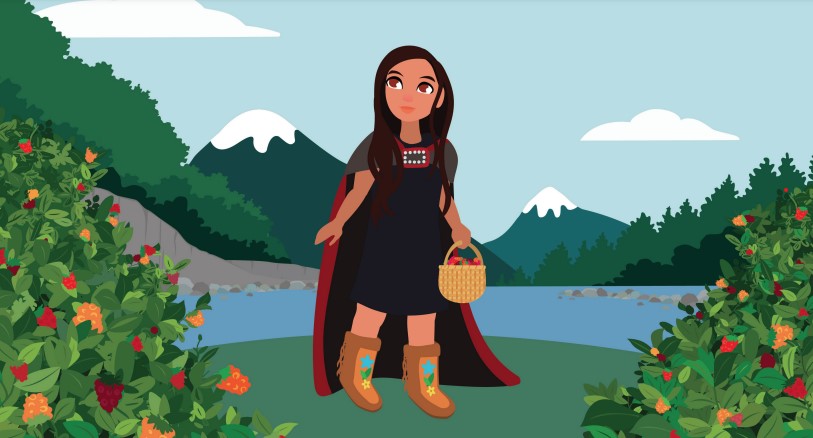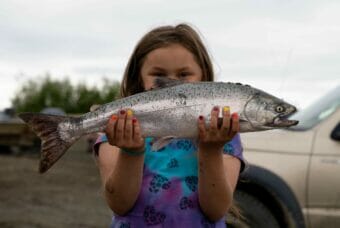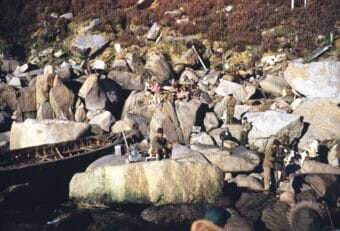
“Kuhaantí” means “orphan” in Lingít. Itʼs now the title of a childrenʼs book written entirely in the language with no English translations — the first of its kind in decades. The book will launch on Friday at 5 p.m., with a reading at Juneau’s Elizabeth Peratrovich Hall.
University of Alaska Southeast language professor X̱ʼunei Lance Twitchell, who collaborated with master Lingít speakers to write the book, says the lack of English translation serves two purposes.
“Very few people can speak our language, so it’s one of many different tools to help people learn,” he said. It’s also a way “to privilege our language, and to elevate it to this place to say, ‘Our literature can stand on its own.'”
Central Council of Tlingit and Haida Indian Tribes of Alaska and Goldbelt Heritage Institute are hosting the book launch. Twitchell will read the story aloud, and the illustrators G̱at X̱wéech Nick Alan Foote and Jaax̱snée Kelsey Mata Foote will sign copies for attendees. Little ones and parents are encouraged to wear regalia.
“Kuhaantí” tells the story of a young orphaned girl named Saháan who is taken in by a powerful family and learns about the value of respect.
In 2016, Twitchell began writing down that and eight other stories with master Lingít speakers Kaxwaan Éesh George Davis and Shaksháani Marge Dutson. Both have since died. Twitchell said he wanted the final product to honor their legacies “as incredible speakers and teachers of our language.”
He anticipates the lack of an English translation of “Kuhaantí” could bring up complicated feelings for some readers.
“Some of those are going to be based in concepts of racial superiority and linguistic superiority, but others are going to be nested in just longing for being able to speak,” Twitchell said.
He hopes that for those who feel left out, the book could inspire them to start learning Lingít.
“We have become dependent on the English language,” Twitchell said. “‘We’ being the entire region — everybody who lives on Lingít Aaní.”
And so, he says, the goal is to give everyone on Lingít land a free copy of “Kuhaantí.” For now, Tlingit and Haida and Goldbelt are giving free copies to all tribal citizens who sign up.
The eight other Lingít-only children’s stories are still being made.


